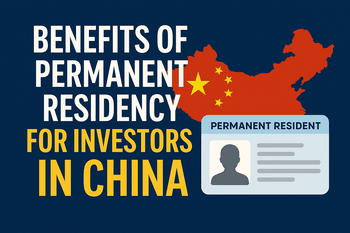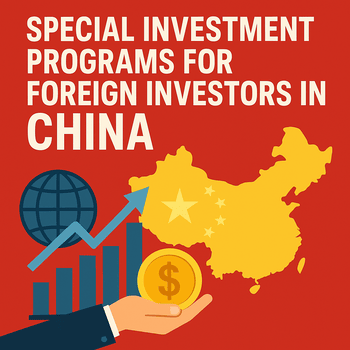
Here, we outline key tips for expats to successfully establish and expand their professional network in China.
Building a professional network in China can be a transformative experience for expats looking to advance their careers and broaden their personal horizons.
China’s dynamic business environment presents numerous opportunities, but understanding the cultural nuances and leveraging effective strategies is crucial.
Understanding Chinese Business Culture
Cultural Awareness: The first step in building a professional network in China is understanding the Chinese business culture. Respect for hierarchy, maintaining face (面子 mianzi), and the importance of relationships (关系 guanxi) are central to Chinese business practices. Demonstrating respect and showing genuine interest in the local culture can significantly enhance your networking efforts.

Learning the Language: While many Chinese business professionals speak English, learning Mandarin can be a significant advantage. Even a basic understanding of the language shows respect and willingness to integrate, which can open more doors and facilitate deeper connections.
Utilizing Professional Organizations and Networking Events
Industry Associations: Joining industry-specific associations can provide valuable opportunities to meet key players in your field. Organizations like the American Chamber of Commerce in China (AmCham China) and the European Union Chamber of Commerce in China (EUCCC) host regular events that are excellent for networking.
Networking Events: Attending networking events organized by these chambers, as well as other professional groups, can help you meet potential business partners, mentors, and friends. Keep an eye out for events such as trade fairs, conferences, and seminars related to your industry.
Leveraging Online Networking Platforms
WeChat: WeChat is an indispensable tool for networking in China. It’s not just a messaging app but a powerful platform for professional communication. Join WeChat groups relevant to your industry and use the app to stay connected with your contacts.
LinkedIn: LinkedIn is widely used by professionals in China. It’s an excellent platform to connect with local professionals, join relevant groups, and engage with content that showcases your expertise. Ensure your profile is updated and reflects your professional achievements and goals.
Building Relationships Through Guanxi
Understanding Guanxi: Guanxi, the concept of building networks or connections, is fundamental in Chinese culture. It’s about creating trust and mutual benefit over time, rather than just a business transaction. Developing guanxi requires patience and a genuine interest in building long-term relationships.
Personal Interaction: Face-to-face interactions are crucial. Regular meetings, attending social gatherings, and participating in cultural activities can help solidify these relationships. Invitations to dinners or social events should be accepted, as they provide valuable opportunities to build trust and rapport.
Effective Communication Strategies
Respectful Communication: Communication in China is often indirect. It’s important to be attentive to non-verbal cues and to be polite and humble in your interactions. Avoid confrontational language and be considerate of the other person’s perspective.
Presenting Ideas: When presenting ideas or proposals, be clear, concise, and structured. Use data and case studies to support your points. Ensuring that your presentations and documents are available in both English and Mandarin can also be very beneficial.
Seeking Local Mentorship
Finding a Mentor: Having a local mentor can provide invaluable insights into the business landscape and cultural nuances. Mentors can introduce you to their network, offer advice, and help navigate challenges. Look for mentors through professional organizations, alumni networks, or through mutual connections.
Mentorship Programs: Many multinational companies and local organizations offer formal mentorship programs. Participating in these can help you gain structured guidance and expand your professional network in a more targeted manner.
Participating in Community Activities
Volunteering and Social Groups: Engaging in community activities, such as volunteering or joining social groups, can also enhance your professional network. This not only allows you to give back to the community but also to meet like-minded individuals and potential business contacts in a more relaxed setting.
Cultural Exchange Programs: Participating in cultural exchange programs can provide deeper insights into the local culture and foster meaningful connections. These programs often involve local professionals and can be a rich source of networking opportunities.
Utilizing Expat Networks
Expat Associations: There are numerous expat associations and clubs in China that can be incredibly supportive. Organizations such as Internations and Expat.com offer events and forums that can help you connect with other expats and local professionals.
Online Forums: Joining online forums and social media groups dedicated to expats in China can provide a wealth of information and networking opportunities. These platforms are great for sharing experiences, seeking advice, and finding potential business collaborators.
Continuing Education and Professional Development
Language Classes: Enrolling in Mandarin classes can not only improve your language skills but also provide networking opportunities with fellow students and instructors who may be well-connected.
Professional Courses: Taking professional development courses in China can help you stay updated with industry trends and meet other professionals. Universities and training institutions often offer courses in English tailored for expats.
Conclusion
Building a professional network in China as an expat requires a strategic approach, cultural sensitivity, and a genuine commitment to forging lasting relationships.
By understanding and respecting the local business culture, leveraging online and offline platforms, and actively participating in community and professional activities, expats can successfully establish a robust professional network in China.



